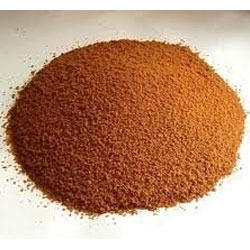Why Choose Rosehip Oil for Acne? Vriksha Veda

Rosehip oil has emerged as a popular natural remedy in the skincare world, especially for those struggling with acne. Extracted from the seeds of wild rose bushes, this oil is renowned for its healing and nourishing properties. Unlike many commercial acne treatments that may contain harsh chemicals, rosehip oil offers a gentle yet effective approach to managing acne and improving skin health. With its rich blend of essential fatty acids, antioxidants, and vitamins, rosehip oil addresses inflammation, supports skin repair, and helps balance moisture levels. In this article, we’ll explore how incorporating rosehip oil into your skincare routine can help combat acne and promote clearer, healthier skin.
Rosehip oil is rich in essential nutrients rosehip oil for acne can positively affect acne-prone skin. Here’s why it’s worth considering:
- Anti-Inflammatory Properties: Rosehip oil contains natural anti-inflammatory compounds that help reduce redness, swelling, and irritation associated with acne. These properties can soothe inflamed skin and alleviate discomfort.
- Rich in Essential Fatty Acids: The oil is abundant in omega-3 and omega-6 fatty acids, which are crucial for maintaining skin health. These fatty acids help repair and regenerate skin cells, promoting faster healing of acne lesions.
- High in Vitamin C: Rosehip oil is a source of vitamin C, an antioxidant that aids in collagen production. Collagen is essential for skin repair and regeneration, which can help reduce the appearance of acne scars and improve overall skin texture.
- Non-Comedogenic: Unlike some oils that may clog pores and worsen acne, rosehip oil is considered non-comedogenic. This means it’s less likely to block pores, making it a suitable option for those with oily or acne-prone skin.
- Balances Skin Moisture: Rosehip oil helps to balance skin moisture levels without making the skin greasy. Proper hydration is important for maintaining healthy skin and preventing excessive oil production that can lead to acne.
How to Use Rosehip Oil for Acne?
Incorporating rosehip oil into your skincare routine can be straightforward. Here’s how to use it effectively:
- Direct Application: Cleanse your face thoroughly before applying rosehip oil. Gently massage a few drops of oil into your skin, focusing on areas affected by acne. Use it as a part of your evening skincare routine to allow it to work overnight.
- Mixed with Moisturizer: Add a few drops of rosehip oil to your regular moisturizer to enhance its hydrating and healing properties. This can be particularly useful if you want to integrate the oil into your morning routine without using it alone.
- Spot Treatment: For targeted treatment, apply a small amount of rosehip oil directly onto acne spots or scars. Its regenerative properties can help reduce the appearance of blemishes and promote faster healing.
- Face Mask: Create a soothing face mask by mixing rosehip oil with other beneficial ingredients like honey or yogurt. Apply the mask to your face, leave it on for 10-15 minutes, and then rinse off with lukewarm water.
Choosing the Right Rosehip Oil
For the best results, selecting a high-quality rosehip oil is crucial. Here’s what to look for:
- Cold-Pressed Extraction: Choose rosehip oil that is cold-pressed to ensure it retains its natural nutrients and therapeutic properties. Cold-pressed oil is extracted without heat or chemicals, preserving its effectiveness.
- Organic Certification: Opt for organic rosehip oil to avoid exposure to pesticides and synthetic additives. Organic certification ensures the oil is produced from high-quality, environmentally-friendly sources.
- Dark Glass Bottle: Ensure the oil is packaged in a dark glass bottle to protect it from light and maintain its potency. Light exposure can degrade the oil and reduce its effectiveness.
- Freshness: Check the expiration date and choose the freshest oil possible. Fresh oil is more effective and less likely to cause irritation.
Conclusion
Rosehip oil is a versatile and natural remedy that offers numerous benefits for acne-prone skin. Its anti-inflammatory, hydrating, and skin-repairing properties make it a valuable addition to any acne treatment routine. By choosing high-quality, unrefined rosehip oil and incorporating it into your skincare regimen, you can harness the power of nature to achieve clearer, healthier skin. As with any skincare product, it’s essential to do a patch test before full application to ensure compatibility with your skin.
FAQs about Rosehip Oil for Acne
1. How does rosehip oil help with acne?
Rosehip oil aids in treating acne through its anti-inflammatory properties, which help reduce redness and swelling associated with breakouts. Additionally, it is rich in essential fatty acids like omega-3 and omega-6, which support skin repair and regeneration. The oil also contains antioxidants, such as vitamin C, that promote collagen production and improve skin texture, helping to reduce acne scars and blemishes.
2. Can rosehip oil cause more breakouts?
Rosehip oil is considered non-comedogenic, meaning it is unlikely to clog pores or exacerbate acne. However, individual skin reactions can vary. It’s important to do a patch test before applying it to your entire face to ensure that your skin doesn’t have an adverse reaction. If you notice any irritation or worsening of acne, discontinue use and consult with a dermatologist.
3. How should I apply rosehip oil for acne treatment?
For effective acne treatment, apply a few drops of rosehip oil directly to clean, dry skin. Gently massage the oil into affected areas or use it as a spot treatment on individual blemishes. It can also be mixed with your regular moisturizer for added hydration and skin repair. For best results, use it as part of your evening skincare routine to allow it to work overnight.
4. How do I choose high-quality rosehip oil?
When selecting rosehip oil, look for products that are cold-pressed and organic to ensure the highest quality and purity. Cold-pressed oil retains more of its natural nutrients and benefits, while organic certification ensures that the oil is free from pesticides and synthetic additives. Additionally, choose rosehip oil packaged in a dark glass bottle to protect it from light and maintain its potency.











